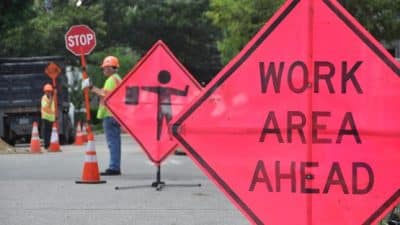
The Relief for Survivors of Miners Act eases burden on family members of miners who died from black lung disease.
Bureaucratic requirements currently place unnecessarily strict burdens of proof on survivors to access benefits.
U.S. Sens. Mark R. Warner and Tim Kaine of Virginia, Joe Manchin of West Virginia, Sherrod Brown of Ohio, and Bob Casey and John Fetterman of Pennsylvania reintroduced legislation to support family members of miners who have died of black lung disease and make it easier for survivors to successfully claim benefits.
“The last thing grieving families in Virginia’s mining communities should have to worry about is whether or not they’ll be able to put food on the table or a roof over their heads,” Warner said. “But too often survivors of miners who have lost their lives to black lung are denied benefits they deserve because of unfair and unnecessary bureaucratic obstacles. The Relief for Survivors of Miners Act will alleviate this burden for families going through the worst time in their lives.”
Kaine said “tremendous sacrifices” have been made by Virginia’s mining communities “to power our nation, and the families of miners who lost their lives to black lung disease deserve our support. This bill is critical to removing unnecessary red tape that has prevented families from accessing benefits and expanding resources to help families secure the support they need.”
“For generations, our brave miners and their families have made immense sacrifices to power West Virginia and America to greatness. Far too often, the surviving family members of coal miners lost to Black Lung disease face difficulties in securing the benefits they are entitled to,” Manchin said. “I’m proud to reintroduce the Relief for Survivors of Miners Act, which will help cut through the bureaucratic red tape that can delay access to these benefits, as well as improve access to legal representation for miners and their survivors. I urge my colleagues on both sides of the aisle to help pass this commonsense legislation that supports our coal miners and their families who have given so much to our nation.”
In 1976, the Black Lung Benefits Act (BLBA) began to provide monthly benefits to eligible surviving family members of coal miners whose deaths were due to black lung — a disease caused and exacerbated by long-term inhalation of coal dust. Benefits are paid for by coal mining companies or the Black Lung Disability Trust Fund. Current restrictions with the Black Lung Benefits Program require survivors to establish a burden of proof that black lung was a substantial contributing cause of death. However, autopsy reports may not specifically cite black lung, and instead reference related conditions.
According to Brown, miners in Ohio put their health at risk and too many lose their lives to black lung.
“The Relief for Survivors of Miners Act will ensure these miners’ families don’t have to navigate an interminable claims process just to get the benefits they have earned,” Brown said.
The United States has relied on coal miners to power factories and heat homes for several decades.
“Many coal workers risked their lives and their long-term health to do the job of powering years of prosperity and Congress has an obligation to support them, just as they’ve supported us. The Relief for Survivors of Miners will ease access to benefits and support services for the families of miners that have passed away from illnesses linked to their time in the mines. Coal miners have pushed our country forward, and I’ll keep fighting to make sure they and their families aren’t left behind,” Casey said.
The last thing grieving family members should have to deal with is red tape and bureaucracy, Fetterman said.
“Coal miners do dangerous and important work, with a real risk of black lung and other serious health impacts. Survivors deserve to receive their benefits as quickly and easily as possible, and that’s what this bill would do,” Fetterman said.
The legislation would:
• Re-establish a rebuttable presumption that a miner’s death was due to black lung if they were disabled due to pneumoconiosis at the time of death;
• Improve access to legal representation for miners and survivors of miners to ensure that individuals are not unable to secure benefits due to a lack of financial resources.
• Request that the Government Accountability Office (GAO) provide a report to Congress on the financial impact of recouping interim Department of Labor payments in order to determine the financial impact of black lung benefits and interim payments on black lung beneficiaries and the government;
• Request that GAO look at other ways to improve the black lung benefits claims process for survivors of miners.










